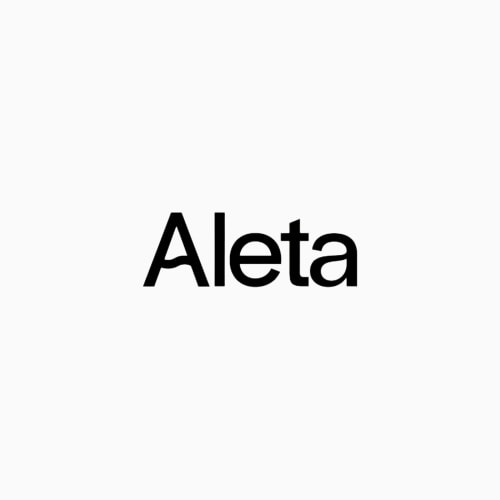Whenever technology and family offices are mentioned in the same sentence, the dreaded words ‘Excel spreadsheets’ come up. As far as legacy goes, the Microsoft program has been around for generations. It’s practical and cheaper on paper, but what no one talks about is how holding on to old technology can end up being very costly. We explore these hidden costs through insights from Ken Gamskjaer, CEO and co-founder of Aleta, who has been working closely with family offices for the last fifteen years.
“At Aleta, we’ve seen firsthand how relying on outdated methods can negatively impact family offices in numerous ways.” – Ken Gamskjaer, CEO & Co-founder of Aleta.
Manual processes: What’s the real price?
Ken highlights that one of the most significant hidden costs is the wasted time on manual tasks. “Family office employees often spend excessive time on administration, like manually entering data and reconciling reports, instead of focusing on high-value activities that directly benefit the families they serve.”
A Deloitte report further supports this, revealing that 72% of family offices admitted that they were underinvested in operational technology. “This isn’t just about wasted time,” Ken emphasises. “It also introduces a higher risk of human error, which can have serious financial consequences and erode trust with the families served.”
Outdated tech: More than a security risk?
The risks extend beyond operational inefficiencies. “Outdated technology leaves family offices exposed to data breaches, real financial loss, and reputational damage in a threat landscape that’s evolving by the day,” Ken warns. This is because legacy systems often lack the robust cybersecurity measures needed to protect sensitive data in today’s threat landscape. Ken notes that cybersecurity protections, such as regular software updates and multi-factor authentication, are often absent in legacy software.
Furthermore, relying on old tech can hinder productivity. “These systems often lack the flexibility and specialised reporting capabilities that modern family offices need, especially when dealing with diverse and complex investment portfolios.” Ken points out that investment teams might find themselves creating additional spreadsheets just to compensate for these limitations.
Over time, legacy systems get bugs, break down, and become more challenging to fix. The long-term costs of maintaining outdated systems can also be substantial. “As these systems age, they become more prone to breakdowns and require increasingly expensive and difficult maintenance,” says Ken. “The longer a family office waits to upgrade, the greater the disruption and cost will eventually be.”
Next-gen disconnect: A threat to legacy?
A wealth management report cites that wealth transfers from one generation to the next result in 9 out of 10 heirs ditching their parents’ advisors. Ken highlights that one reason for this drastic fallaway is that older advisors are usually slow to adopt new tools and advisory models.
“Younger family members have grown up with technology and expect a digital-first experience,” Ken states. “They want instant access to information and transparency, expecting to find everything they need conveniently on their phones.” Legacy systems simply can’t deliver this, and that can lead to disengagement and put the long-term relevance and continuity of the family office at stake.”
In response to this, and based on more than 15 years of experience in wealth reporting, Ken and his team built Aleta to bridge the generational gaps. Aleta is a next-generation wealth management platform with an intuitive user interface. It’s mobile-friendly, has a dedicated private markets module, and shows sustainability metrics alongside traditional financial metrics. The platform is built by software developers who not only have a deep understanding of family offices’ unique needs but also commit to designing purpose-driven tools.
Poor decision-making: The ultimate cost?
Further expanding on why he built Aleta, Ken elaborates that family offices relying on manual processes and disparate systems often face delays and inaccuracies in their information without a consolidated, real-time view of their data. “Without a single source of truth, decision-making becomes reactive, fragmented, and vulnerable to bias, and this exposes the family’s capital and long-term strategy to unnecessary risk.”
“Poor decision-making and the loss of competitive edge are two critical hidden costs that are often overlooked “, Ken states. He points out the competitive disadvantage of clinging to outdated methods: “Given the rapid technological advancements in wealth management, family offices that fail to adopt modern technology will eventually fall behind more agile peers who move faster, attract sharper talent, and capitalise on opportunities before they’re even on the radar of legacy-driven operations. These family offices will ultimately lose their competitive edge in preserving and growing their wealth for the future.”
About Aleta
Aleta is a next-generation wealth management platform. With more than 15 years of experience in wealth reporting, we’ve gained unparalleled insights into the unique needs and preferences of family offices.
These insights have shaped our award-winning wealth platform for forward-thinking family offices, which automatically and securely consolidates all financial data into a single, intuitive interface for a holistic and transparent wealth overview.
You can analyse your wealth with advanced features, drill down to the transaction level to illuminate every nook and corner of your wealth and manage your private equity investments from a dedicated private markets module. To ensure seamless access to these insights, we’ve launched a cutting-edge mobile app that allows you to stay on top of your investments on the go.



